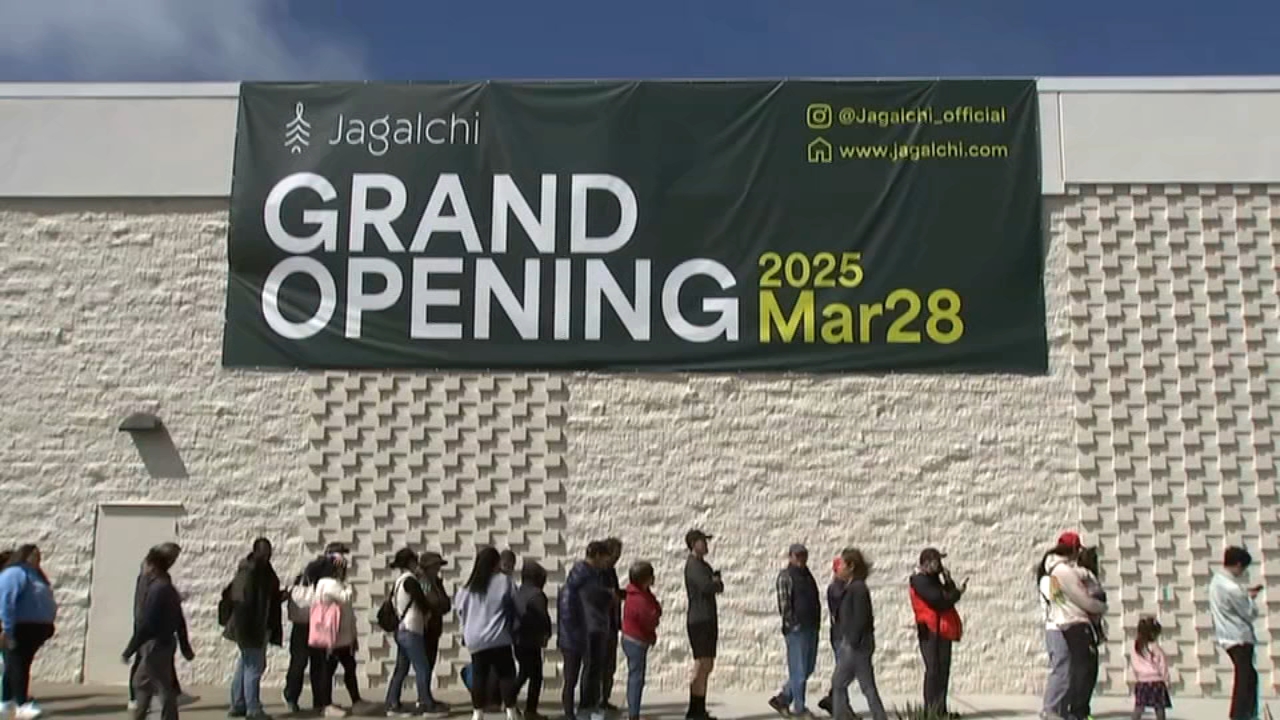Omicron variant: 1st US case sparks new COVID vaccine research for Bay Area institutions
SAN FRANCISCO (KGO) -- Now that the omicron variant has reached the U.S. via the Bay Area, the question follows, what happens next for vaccines, public policy and research?
UCSF has confirmed they're now hoping to grow a culture of the actual omicron virus itself using the sample that Dr. Charles Chiu, M.D. and his team gene sequenced. Dr. Melanie Ott, M.D. is a virology expert with San Francisco's Gladstone Institutes. She says having the virus itself is the gold standard for various kinds of research and predicting what the variant may do.
RELATED: United States identifies first case of new COVID-19 omicron variant in California
"What is the virus causing? How is the virus replicating? And in an organism, how does it spread? How sick does it make you," explains Dr. Ott.
Dr. Catherine Blish is an infectious disease researcher at Stanford and part of a consortium along with Ott and other Bay Area labs including U.C. Berkeley currently studying Omicron. "Once you have that virus, you can do a lot of important things, because you can add it to cells and compare it to say delta or the original wild type and see, does it infect better? Does it take fewer viral particles to do the same thing," says Dr. Blish.
Bay Area based biotech ATUM is already using another technique, producing DNA sequences that will allow companies to test the effectiveness of their vaccines by producing lab so called pseudo-virus's that mimic characteristics of Omicron.
RELATED: Can omicron be stopped by current vaccine? Bay Area leads race to produce new variant's DNA
"It's efficient, it's fast, because it's just as fast as these companies can synthesize the DNA, we can do it," says Dr. Blish.
The answers that testing with these techniques and others provide could be critical for understanding what comes next. If a new or tweaked vaccine were required, the FDA could have to decide when it can be released and with how much testing or clinical trial.
Still, Dr. Blish is optimistic. "You know, we are definitely in uncharted territory here in terms of that, so I can really only speculate, and it's really up to the FDA how they want to do it. But I'm going to step back and say that first, we have no reason to believe, at this time that our vaccines won't work against Omicron," she believes.
She says it may turn out that T-Cell response, a secondary line of defense produced by the immune system, may offer a degree of protection as well. In the meantime, the search for answers is continuing at a furious pace, both here in the Bay Area and around the world.
VACCINE TRACKER: How California is doing, when you can get a coronavirus vaccine
Having trouble loading the tracker above? Click here to open it in a new window. RELATED STORIES & VIDEOS:
- Map shows everywhere you can get a COVID-19 test in the Bay Area
- Here's that we know about the omicron variant so far
- Here's everything you need to know about COVID-19 booster shots
- How to show proof of vaccination in San Francisco or anywhere in California
- Should vaccinated people get tested if exposed to COVID-19? CDC explains
- Can a breakthrough infection still lead to long haul COVID-19? San Francisco doctor explains
- Data tracker: Coronavirus cases, deaths, hospitalizations in every Bay Area county
- Get the latest updates on California EDD, stimulus checks, unemployment benefits
- Coronavirus origin: Where did COVID-19 come from?
- What is a COVID-19 genetic, antigen and antibody test?
- What does COVID-19 do to your body and why does it spread so easily?
- Coronavirus Timeline: Tracking major moments of COVID-19 pandemic in San Francisco Bay Area











